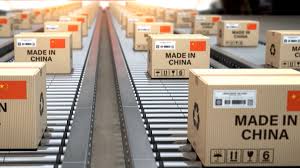How does the EU protect businesses from unfair trading practices?

Anti-dumping or anti-subsidy measures protect European companies operating in the single market from imported goods with artificially low prices. It’s no secret that property prices have soared across the European Union in recent years.
According to Eurostat, house prices have increased on average by 48 per cent and rents by 22 per cent since 2010. And it’s not just house prices – the cost of living crisis means just about everything is getting more expensive.
But what are the risks to just looking at the bottom line, hunting for a bargain? How do low-value buy-ins affect European suppliers who are trying to keep prices competitive, yet are faced with higher labour, environmental and raw material costs?
It’s not just European flooring and hardware companies that are facing a wave of competition from outside of the EU, steel, chemicals, the agricultural, vehicle, food and textile industries also face stiff external competition.
Italy’s scenic Emilia-Romagna region is at the heart of the country’s ceramics industry and has a yearly turnover of approximately €8 billion. The cluster directly employs some 20,000 people, with several thousand more employed indirectly.
Graziano Verdi, the CEO of Italcer Group, a collection of high-end wall and flooring tile companies, told Euronews that the Italian ceramics sector is at risk because companies in India are exporting materials to Europe under cost: “In just a few years, India had seven per cent of market share in Europe and in the last year they increased more than 60 per cent,” he said.
While the EU has imposed tariffs on Indian tiles, the ceramics sector argues they are far too low.
However, Verdi says it was a different story regarding tariffs on Chinese imports: “For China, Europe decided at the right moment with the right taxation and also very quickly. Today [ceramic inputs from] China make up less than one per cent of the European market.”
Stiff competition
Ultra low-cost tableware from China had a devastating impact on European SMEs. “There are really few companies in Italy and Europe that still produce tableware because most of the industry was destroyed,” concluded Verdi.
Energy prices have increased considerably in Europe, partly due to Russia’s full-scale invasion of Ukraine, which has had a knock-on effect on the tile-making industry. Kilns, the thermally insulated ovens used to make ceramic tiles, need to be kept at 2,000°C to harden clay.
Across Europe, cheap imports made by overseas suppliers who can provide low-cost alternatives due to cheap labour and lower environmental standards are a threat.
Protecting European businesses
Trade Defence Instruments such as anti-dumping or anti-subsidy measures are designed to protect European businesses.
Some companies from outside the EU operate on loss-leader strategies and price products lower than production costs to attract customers and penetrate new markets.
However loss-leading strategies can hurt surrounding competition, particularly SMEs who might be forced to keep their prices low to attract business.





